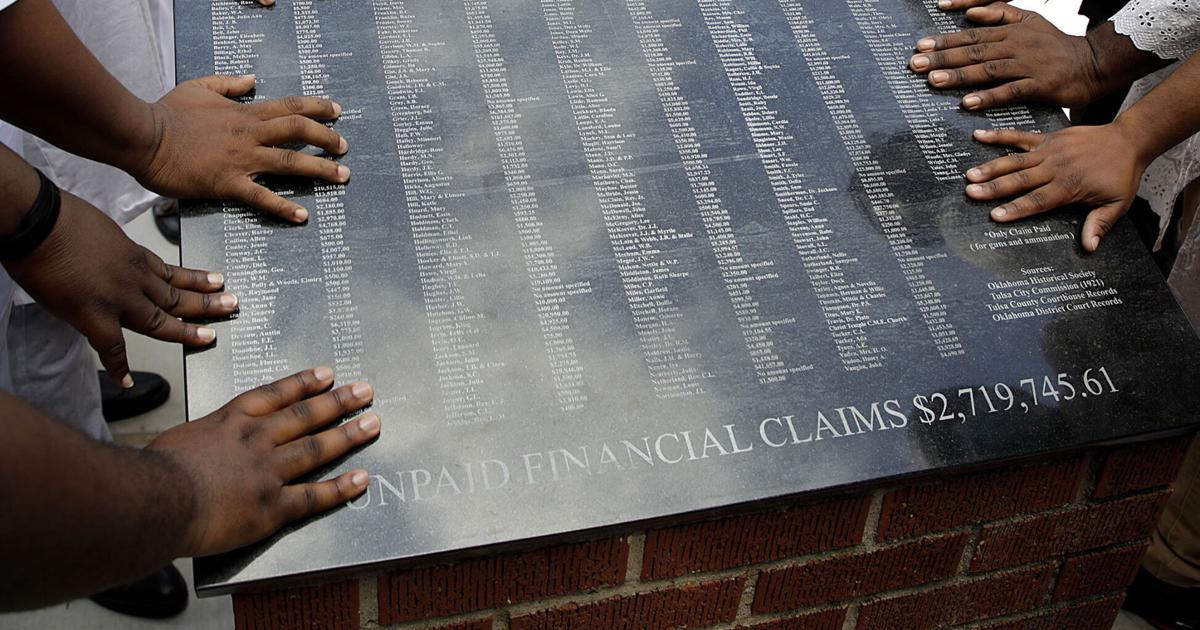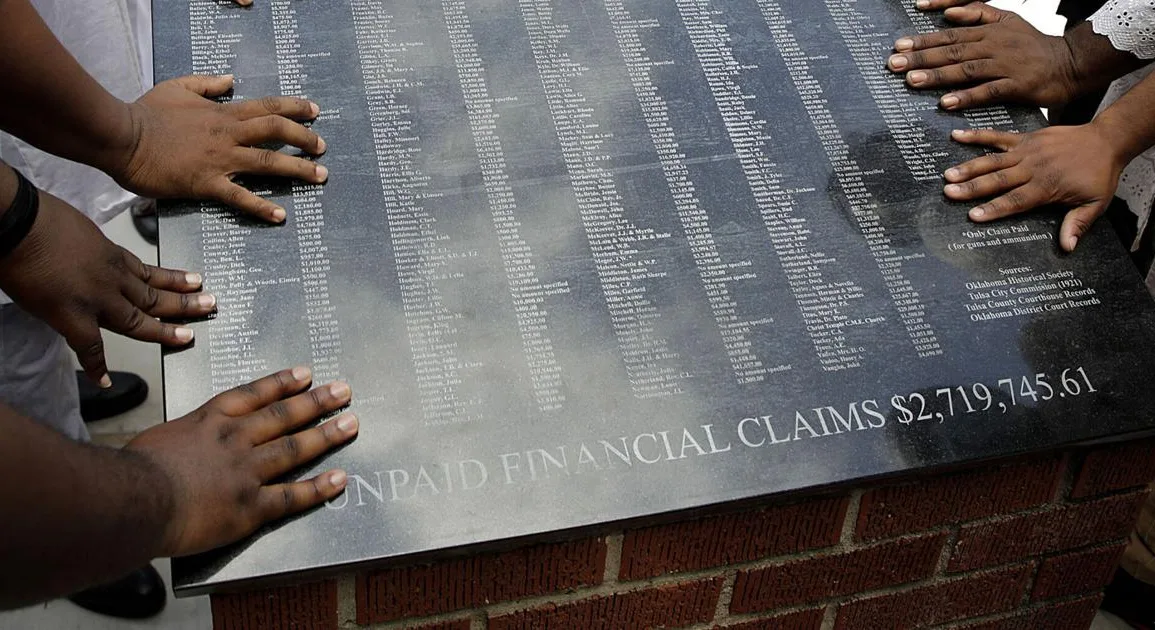
A community meeting will be held Thursday night to review and discuss the results of the Beyond Apology report on possible avenues for providing reparations and repair to individuals harmed by the 1921 Tulsa Race Massacre.
The meeting is 5-7:30 p.m. at 36th Street North Event Center, 1125 E. 36th Street North. Individuals interested in participating in Thursday night’s meeting are asked to RSVP online.
“At the community meeting we will delve into the reports findings and foster dialogue on potential next steps,” Greg Robinson, project manager for Beyond Apology. “It’s a space for collaboration and understanding, as Tulsa moves forward towards a future characterized by justice and equity.”
The report, issued last month, lays out the findings of a series of community discussions held last year to educate the public on the Race Massacre and on possible forms of reparations and repair. Participants were also invited to offer suggestions regarding how Tulsa could provide redress for the harm caused during the deadly conflagration.
People are also reading…
The report offers no specific actions other than to recommend the creation of a government-sanctioned commission or task force “to establish and implement the terms of a reparations program” for descendants and survivors of the 1921 Tulsa Race Massacre.
The recommendation was put forth by the team that created and implemented the Beyond Apology program. It comprises the community development firm Standpipe Hill Strategies, whose team includes descendants of the Race Massacre, and World Won Development, according to the report.
Thursday night’s meeting comes nearly three years after city councilors and Mayor G.T. Bynum — in the midst of the centennial commemoration of the Race Massacre — approved a nonbinding resolution pledging to make “tangible amends” for the harms caused by the Race Massacre.
In 2022, Bynum signed a separate nonbinding City Council resolution establishing a framework for holding community-led discussions on what those amends might look like.
At least 37 people were killed and thousands more were displaced in the Greenwood District during the events of May 31-June 1, 1921. The actual number of deaths is widely believed to be much higher, but comprehensive records were not kept.
The Beyond Apology public-engagement process consisted of four public meetings that drew 256 unique participants, 83 of whom offered their perspectives and priorities on how the city should address the issue. Of the 83, about one-fifth were descendants of the Race Massacre.
Their priorities, in descending order: education, financial compensation, community and economic development, housing and home ownership, land, health and wellness, systems change/policy, and cultural identity.
The report also provides comparative data showing what reparations and repair recommendations were made in the Race Massacre reports issued by the Oklahoma Legislature and Human Rights Watch.
Robinson has said previously that the Beyond Apology report intentionally avoids proposing specific action items. It is instead intended to offer the community’s perspectives and priorities to help inform the work of the commission that the report recommends the city create.
Councilors will receive that recommendation directly at a committee meeting on Wednesday when they are presented with the findings of the report.
Users can customize the app so you see the stories most important to you. You can also sign up for personalized notifications so you don’t miss any important news.
If you’re on your phone, download it here now: Apple Store or Google Play


